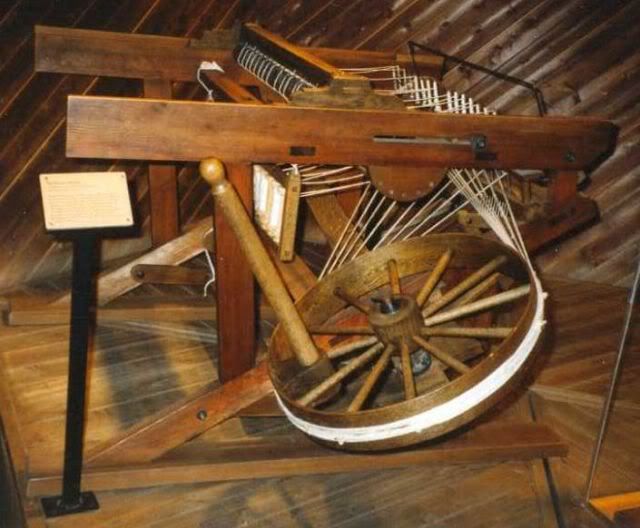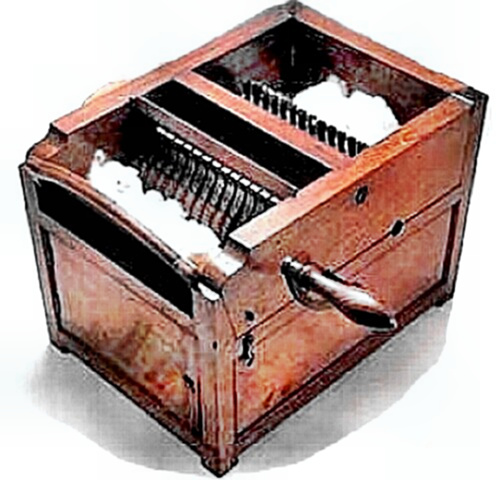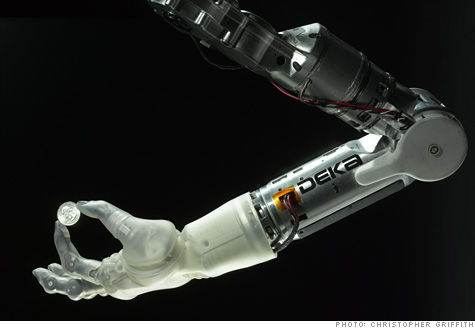My blog is about the Industrial Revolution.
The Industrial Revolution took part between the 1700s-1900s. During these times, there were many advancements made in the Industrial Business, through things such as farming, factories, and inventions. These advancements were first made in Britain, and then made their way to the United States, where they changed the states, mostly for the better.
http://www.mtholyoke.edu/courses/rschwart/ind_rev/images/IR36GR21x1.jpg
Through this blog, I would like to better my grade in MWH, and to increase my knowledge of the Industrial Revolution.
Inventions
During this time period, many inventions were created to help with crops, and factory efficiency. Many machines were created to replace the work of men, women, and children in factories. These machines could operate much more efficient and more quickly than workers could.
Flying Shuttle
- This invention quickly carried threads of yarn back and forth when the weaver pulled the handle of the machine.
- The Flying Shuttle was invented by John Kay
- It changed the world in a way because the invention of this machine greatly increased the productivity of weavers in factories.
Spinning Jenny
- The Spinning Jenny helped spinners to keep up with the work of the weavers.
- This machine was invented by James Hargreave
- Changed the world because it dramatically increased the output of spinners, increasing spinner productivity.
Cotton Gin
- This machine was made to help speed up the process of removing cotton seeds from raw cotton because it was hard to do by hand.
- This invention was thought up by an American inventor, Eli Whitney, who also happened to be an African American.
- Changed the world in that it sped up the chore of removing the seeds from the cotton, it multiplied the amount of cotton that could be cleaned, and it caused the cotton production in America to increase dramatically from 1.5 million pounds in 1790, to 85 million pounds in 1810.
Connection Across Time
The Deka Arm
- The man who created this prosthetic arm is Dean Kamen, who is an inventor at DEKA.
- This invention has changed the world because it gives people and soldiers who have lost an arm in some type of accident, the chance to once again know what it feels like having hands. It works by sending vibrations to what's left of the limb to let them know how hard they're grabbing an object and by using muscles to reenact how they would normally use their hand, they are able to bend and flex the elbow and raise or put down the arm. Currently the are working on figuring out how to use neurons in the brain and get them connected to the arm and basically move the arm by thinking about moving it.
"Why is it, at the end of the Civil War They were shooting each other with muskets, if somebody lost an arm we gave them a wooden stick with a hook on it. Now, we've got F18s and F22s, and if somebody looses and arm we give them a plastic stick with a hook on it." - Dean Kamen
Reform
Capitalism - system in which money is invested in business ventures with the goal of making a profit.
Capitalism was created by Thomas Malthus and David Ricardo, who believed that national laws governed economic life. Malthus believed that without wars and epidemics to kill the extra people in the world, most people would be miserable and poor because the population tended to increase quicker than the food supply. Ricardo took it even further, saying that there's a permanent underclass and that they would always be poor. I believe Capitalism was created to change all that. I like the idea of this reform, but it's hard for someone to begin to invest in a business to make a profit, if they hardly have any money to begin with.
-Ism that exists today
Communism - a form of complete socialism in which the means of production--all land, mines, factories, railroads, and businesses--would be owned by the people. Private property would in effect cease to exist and all goods and services would be shared equally.
This type of reform currently exists in China.
3-2-1 Summary
Three things I learned...
- I learned that during this time period, the inventions that were made were mainly for factory workers and helped them work more quickly and efficiently.
- I learned the differences between the reforms that were formed during this time, and almost all the reforms that exist today were created back during this time period.
- I learned that the industry today is much better than it was back then, and that we're obviously more advanced with the inventions that are made nowadays.
- That capitalism doesn't sound like a very negative form of government when you know what it is, but when you see how it's carried out, for example, in China, you can see that it hasn't turned out the way Malthus and Ricardo had intended for it to.
- Looking at current day inventions that are being thought up by ordinary people.
- What other inventions besides the locomotive stuff and factory machines were created during this time?





